THE INDIGO PROJECT
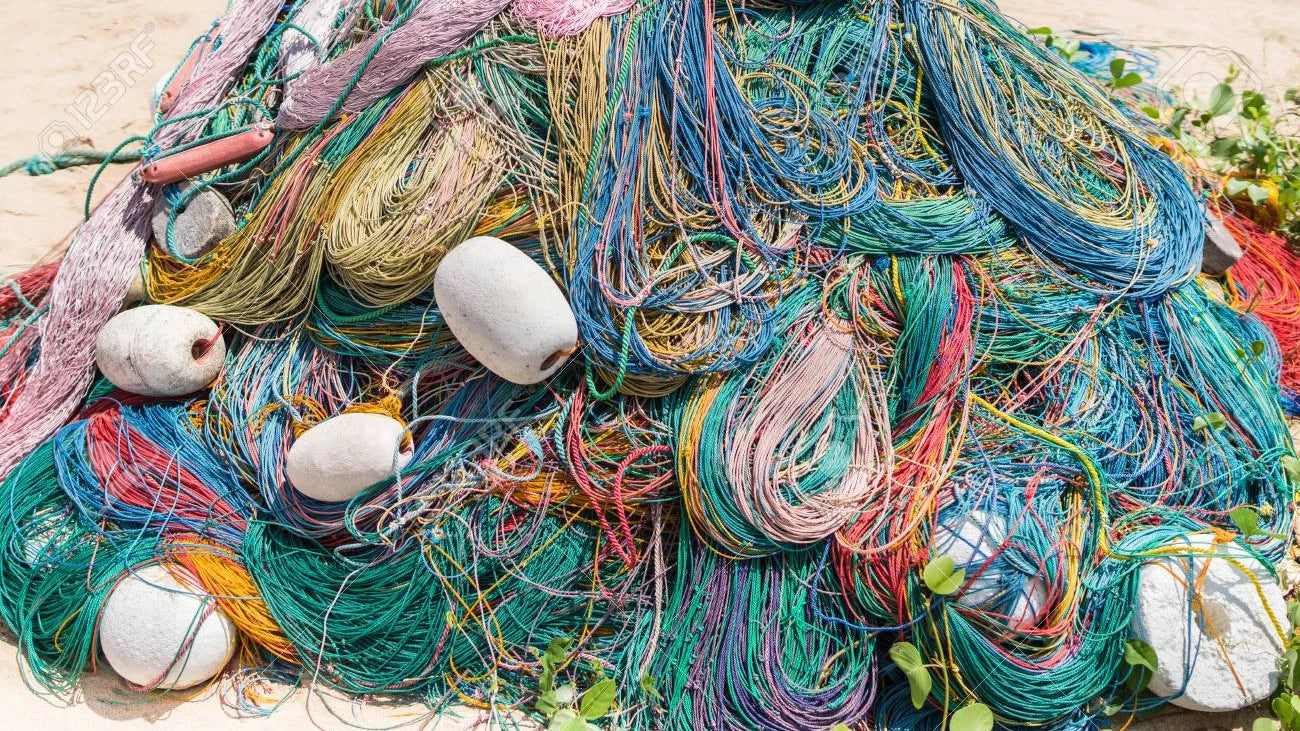
The INdIGO Project: Innovative Fishing Gear for Ocean
ABOUT
The INdIGO Project is a multi-stakeholder initiative concerned with the reduction of plastic fishing gear pollution in the Channel Sea; it also endeavours to redesign the current gear used by applying key sustainable principles that will in effect not only support best practice in the fishing industry but will also help protect the marine environment and all its wildlife.
The project is part funded by the European Union and has a duration 3 years and 9 months (2019 - 2023). The budget allocated is of €4.3m, of which €2.9m is funding acquired from the European Regional Development Fund via the Interreg France Channel England Programme. It has 10 partners in the UK and France and is led by the Université de Bretagne Sud in Brittany.
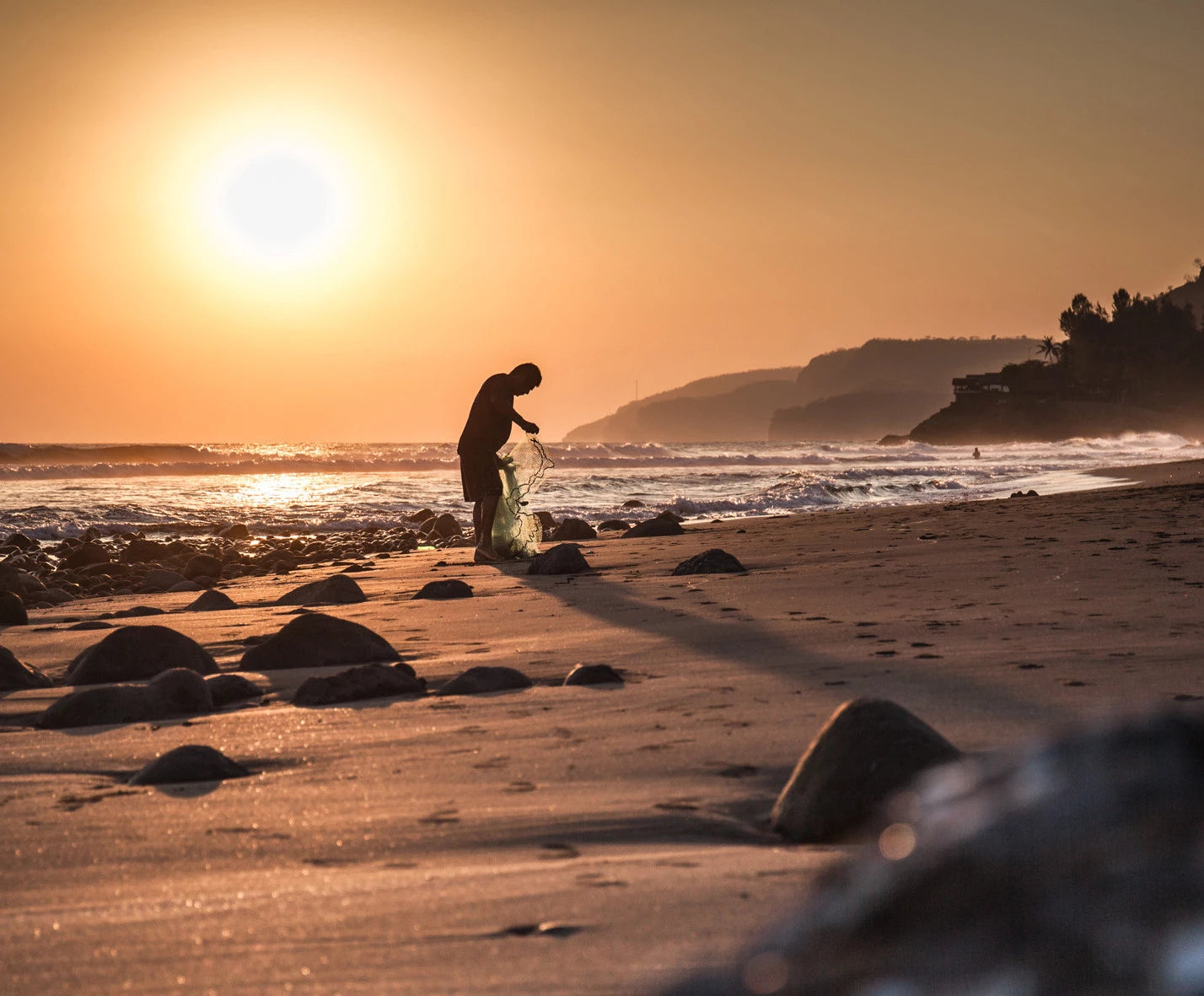
AREAS OF RESEARCH & PROJECT AIMS
The project aims to reduce the amount of plastic in the Channel area of the UK and France by 3% and develop biodegradable fishing gear as an alternative to those currently used in the fishing and aquaculture industry.
Some of the areas of research and activities this project will explore include (but are not limited to):
- conducting market analysis and studying the costs and benefits of developing the new gear
- study the ageing of fishing gear in the marine environment
- testing biodegradation and ecotoxicity
- analysing acceptability and appropriation of the new fishing gear by the end user (by studying the barriers and opportunities for implementation (both technical and economic),
- promote the research amongst political networks with the hope of influencing future regulations
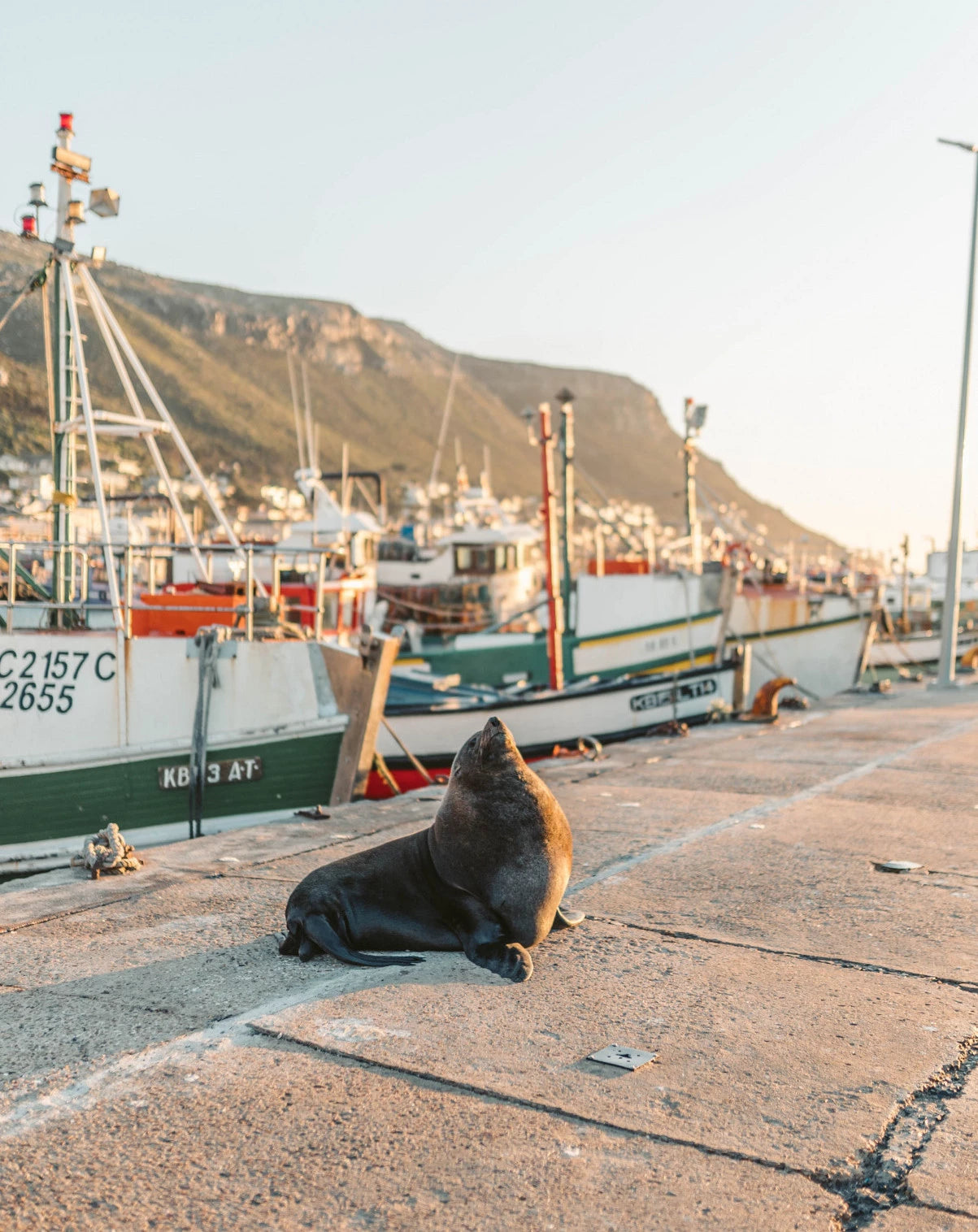
SUSTAINIBILITY: THE HEART OF THE PROJECT
When lost at sea, fishing gear such as nets and traps, can have a direct impact on marine wildlife either due to its ingestion or by it snaring, injuring and ultimately killing the life in question whether a seal, crab, fish, turtle, whale, dolphin, shark etc. This is known as ghost fishing.
Microplastics is another issue being considered throughout this project's efforts. This happens when plastic is broken down into minute fragments and is ingested by marine wildlife only to find its way back into the human food chain.
To reduce, and where possible eliminate these issues, the project will develop two prototypes of biodegradable nets: 1) a fine fishing net made from monofilament and 2) a catching net for mussel culture made from multifilament -this net will degrade faster since the aim is to adapt the lifespan of the materials to its use.
The design of these nets will consider values that until now have not been applied in the manufacturing of mass market plastic fishing gear. Circular economy principles such as sharing, reusing, using materials with less environmental impact, repairing, adapting the life span of materials to their use, renovating, regenerating natural systems and recycling the materials already in use to design out unnecessary waste are at the heart of the project's operations.
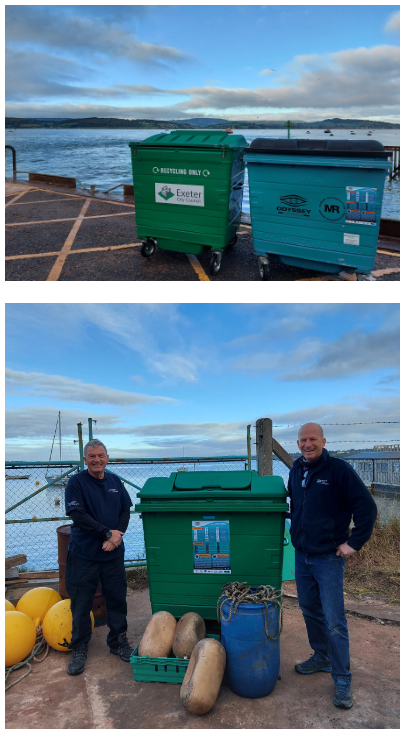
ODYSSEY INNOVATION & THE INDIGO PROJECT
INdIGO’s objective to increase sustainability within the fishing industry goes beyond solely designing and manufacturing eco-friendly gear.
Free port reception recycling facilities play a large part too- this is an aspect Odyssey Innovation have specialised in since 2015. By having the correct infrastructure in place, fishermen have all the amenities which encourage best practice for the disposal of their plastic waste/gear and which acts as a preventative solution to the issue of marine plastic pollution and ghost fishing.
All the while, Odyssey Innovation has collated data on materials available, amounts of gear collected, has set up and developed recycling and collection routes across the United Kingdom whilst continuously ensuring highly positive environmental impacts.
Odyssey Innovation's Managing Director and Founder, Robert Thompson, has been enlisted by the University of Plymouth to support the overall aims and goals of this project. His company is providing itself and its resources as a working case study; the work already done through years of industry, harbour and community outreach not only provides valuable baseline knowledge/data for the regions it operates in but also allows for more robust understanding of the issues and challenges faced on the ground. The data provided will also help inform best practice guides (coming soon) which will also be used to inform behavioral and policy change, locally and abroad.
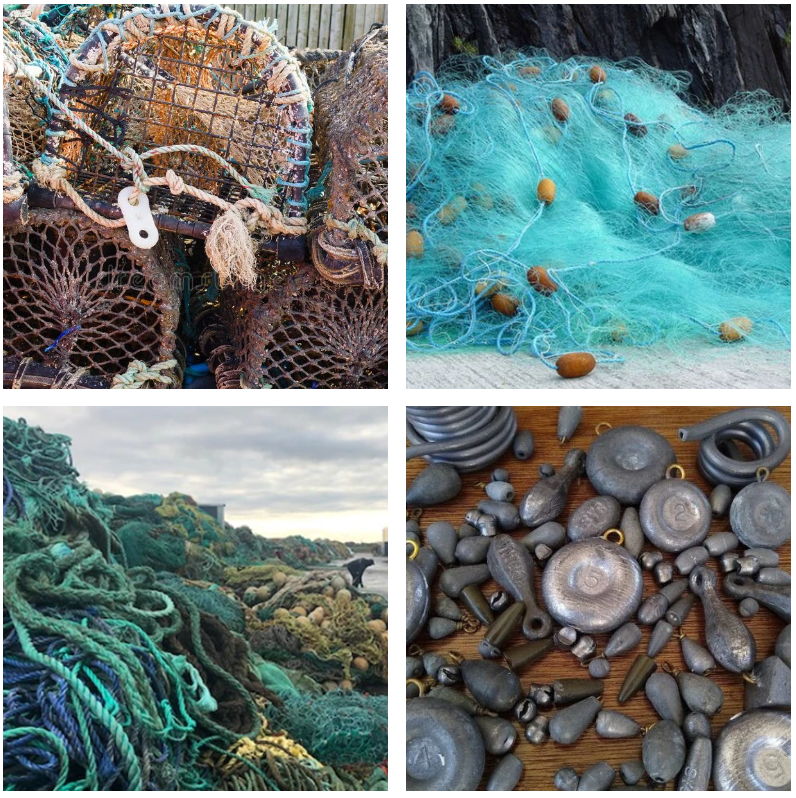
AN APP TO LOG AND TRACK FISHING GEAR
The INdIGO project has also developed a mobile application called FISH & CLICK to locate various types of fishing gears that have already been lost at sea.
This tool not only serves as an aid to support the inhouse research program by mapping fear pollution in the cross-Channel zone, but also serves as an educational tool by engaging divers, walkers and fishermen to report abandoned, lost and discarded fishing equipment.
For more information or to report fishing gear in your location please visit:
Stay Tuned
If you're interested in knowing more about this project please see the following links below.
- The University of Plymouth, INdIGO
Blog posts
View all-
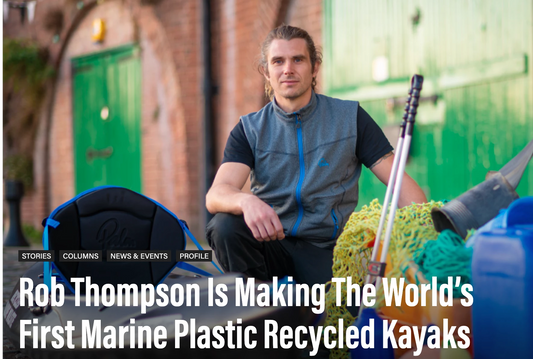
Paddling Magazine - Rob Thompson Is Making The ...
The idea came to Rob Thompson on the coast of Cornwall, in southwest England. Staring at the bulging bags of trash he and his friends had collected from a remote...
Paddling Magazine - Rob Thompson Is Making The ...
The idea came to Rob Thompson on the coast of Cornwall, in southwest England. Staring at the bulging bags of trash he and his friends had collected from a remote...
-
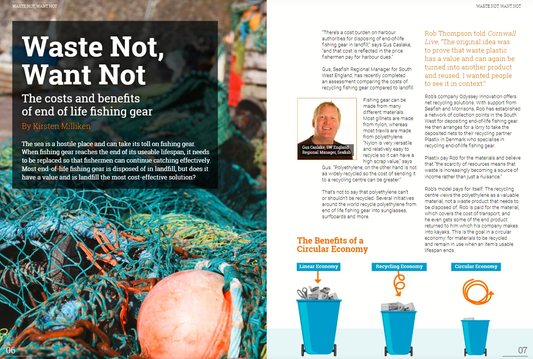
Waste Not Want Not | Odyssey Innovation: The c...
Rob Thompson told Cornwall Live, "The original idea was to prove that waste plastic had value and can again be turned into another product and reused. I wanted people to...
Waste Not Want Not | Odyssey Innovation: The c...
Rob Thompson told Cornwall Live, "The original idea was to prove that waste plastic had value and can again be turned into another product and reused. I wanted people to...
-
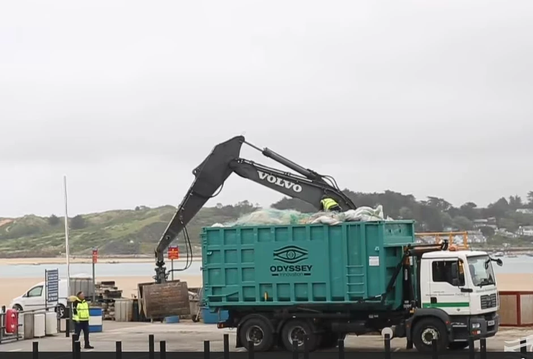
Morrisons - Wild Caught Seafood
Around 10% of all marine litter is derived from the fishing industry so we recognise our supply chain has a big part to play in supporting the reduction of marine...
Morrisons - Wild Caught Seafood
Around 10% of all marine litter is derived from the fishing industry so we recognise our supply chain has a big part to play in supporting the reduction of marine...



